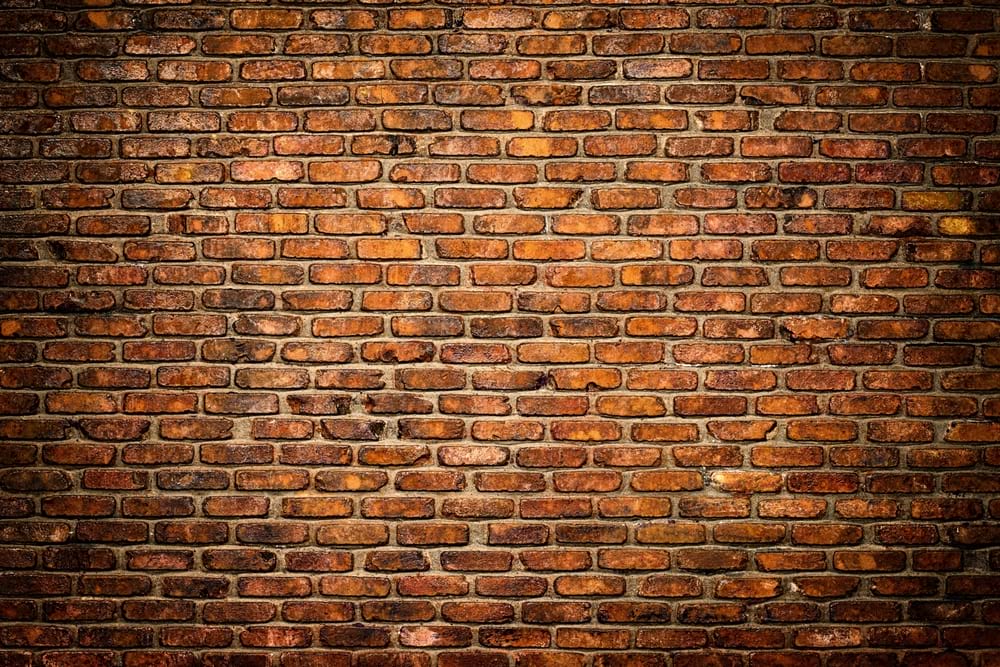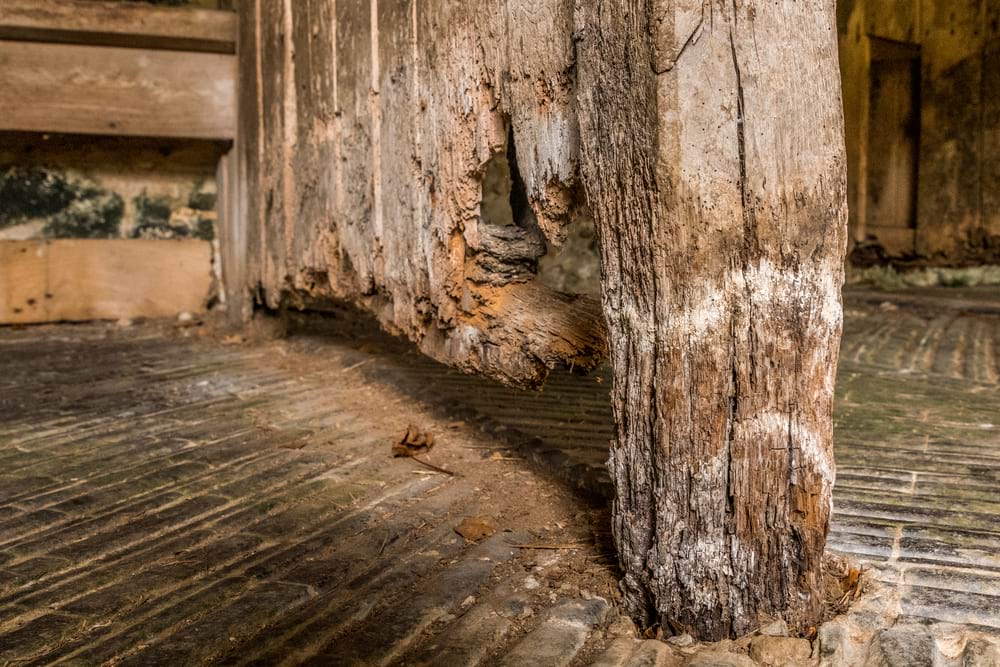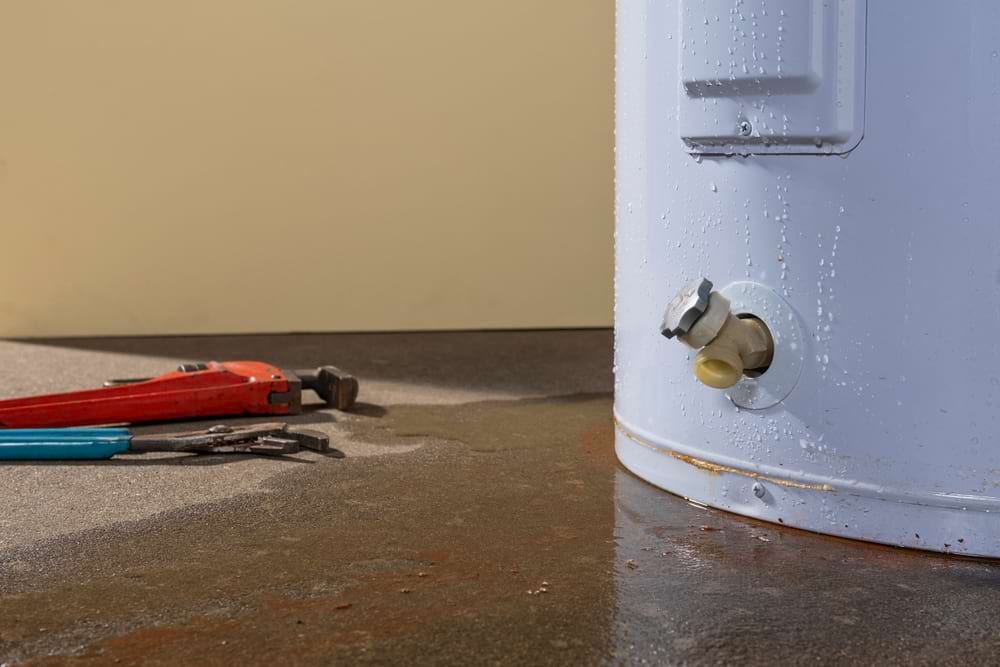Selling to a cash buyer is becoming increasingly popular way to sell property.
Using a cash buyer to sell your home comes with several advantages and disadvantages.
These all depend on your circumstances, goals, and the cash buyer you use.
Read on to learn more, including how long it takes a cash buyer with no chain to complete.
Cash buyer: Definition
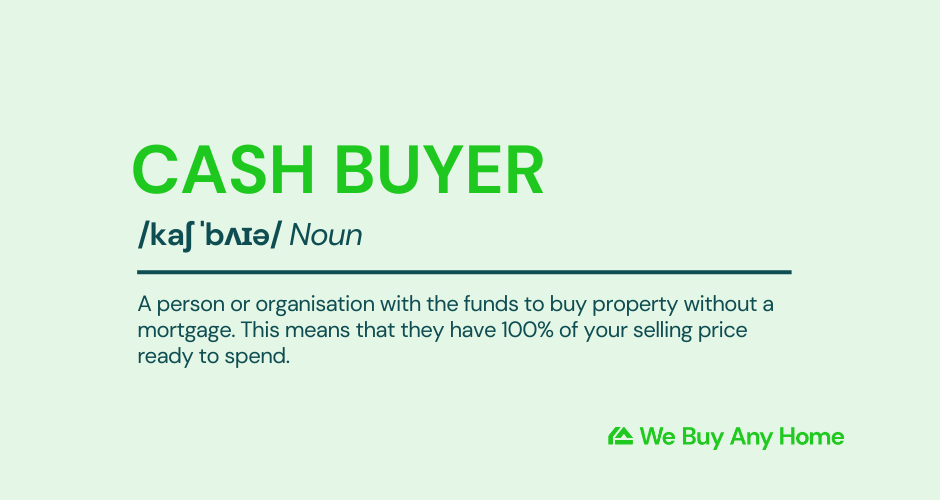
In property, a cash buyer is an individual or company with the funds to buy a home available and accessible.
(Cash buying companies are sometimes referred to as property buying companies.)
Cash buyers usually pay between 80% – 85% of a property’s value.
In exchange for this, they buy it fast with a straightforward process.
Chain-free buyers
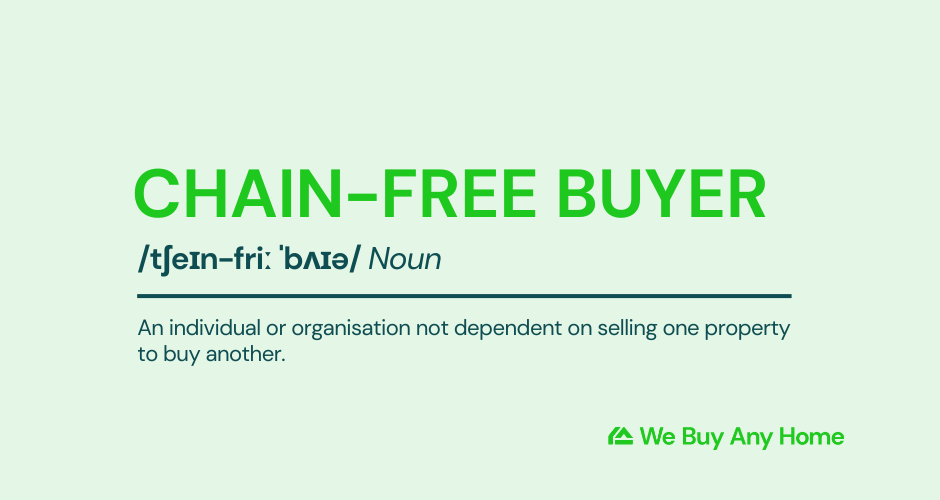
A chain-free buyer is an individual (or organisation) not dependent on selling a current property to purchase a new one.
As a result, their purchase is less likely to be affected by factors like a delayed sale or a buyer pulling out of a chain.
Are all cash buyers chain-free?
Most – but not all – cash buyers are chain-free.
If a buyer is truly chain-free, they are not dependent on selling one property to complete on another.
But in some cases, they are dependent on this. You should clarify this detail with any cash buyer you work with.
A big factor is whether the cash buyer is a company or an individual.
A genuine cash buying company is almost always chain-free. And most solo cash buyers will also clarify whether they are.
Beware of bad actors!
A lot of money is involved in property transactions.
Unfortunately, this attracts bad actors with quick house sale scams.
These companies use a range of tactics to effectively deceive their customers, such as:
- Falsely posing as chain-free cash buyers whilst purposely delaying sales (to gain time to get funds)
- Gazundering customers at the last moment
- Making money on expensive hidden fees.
And more.
Cash buying (with no chain) completion time frames
The average cash buyer can complete the transaction within a few weeks. And the fastest can complete within seven days.
Cash buyers will still want to complete property searches and conveyancing. They often achieve these faster by using in-house or trusted professionals.
Their process does not involve applying for a mortgage. So, there’s no need to spend weeks jumping through hoops for the lender.
Advantages of selling to a cash buyer
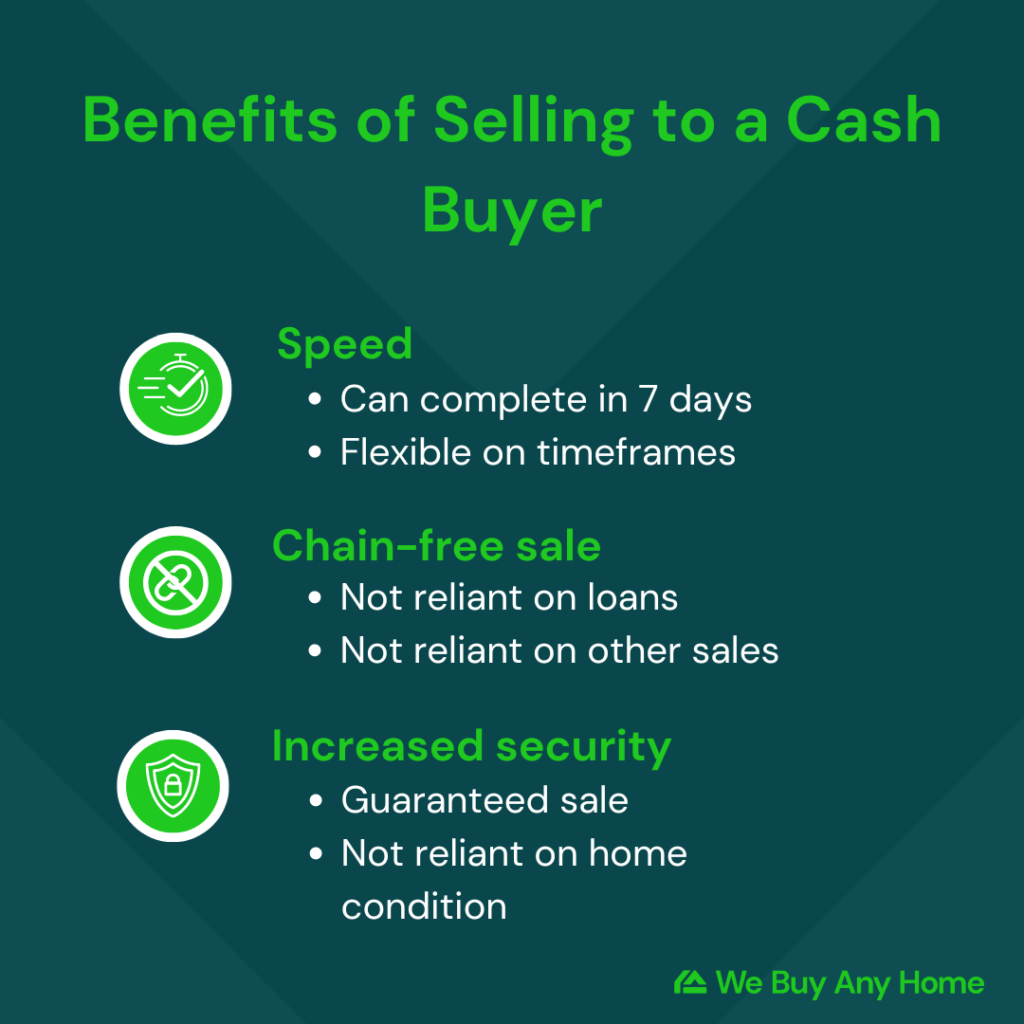
1. Speed
Cash buyers can often complete a house sale in as little as 7 days.
However, they often offer under the asking price when wanting to buy a property.
If you are a buyer in the market for a new property, this might mean you can reduce some money off the asking price. But you save time regular house sellers need for:
- Marketing the property
- Viewings
- Negotiations
- Waiting for loan approvals.
And more.
But this is not good news if you are a seller—unless, of course, you require a quick house sale.
2. Costs
In this case, you will not need to pay a range of fees, including:
- Estate agent fees
- Conveyancing fees
- Legal fees.
And more.
Furthermore, a quick sale will reduce your outgoings on a property. These outgoings can build up if a traditional sale takes a long time to complete.
2. Chain-free sale
Being part of a property chain can make the property-buying process uncertain for all involved.
All parties rely on smooth progress for everyone involved in the chain. When it doesn’t work out, it can slow down or completely stop a property sale.
A cash buyer ends the chain, which can be very attractive for sellers who want a simple, hassle-free sale.
3. Increased security (/certainty)
Cash buyers don’t rely on a mortgage to secure a property or await funds from a sale.
This means a sale is much less likely to fall through than a traditional sale.
Disadvantages of selling to a cash buyer
1. Lower selling price
Sellers on the open market may have an upper hand if they offer a higher price.
This is common when you’re competing against a cash-buying company, as these firms often offer below the market rate.
When the seller is focused on selling price, the cash buyer could miss out.
2. Less room for negotiation
On the open market, sellers can negotiate the final selling price of a property.
This gives them- and buyers – flexibility to consider selling conditions (i.e., whether the house is sold empty or with furniture, etc.) and the chance to gain a higher selling price.
Cash buyers are primarily focused on a fast and efficient sale. They don’t spend much time negotiating offers.
This means selling to cash buyers removes the possibility (present in open market sales) of higher offers from other buyers.
7 ways to find cash buyers for houses
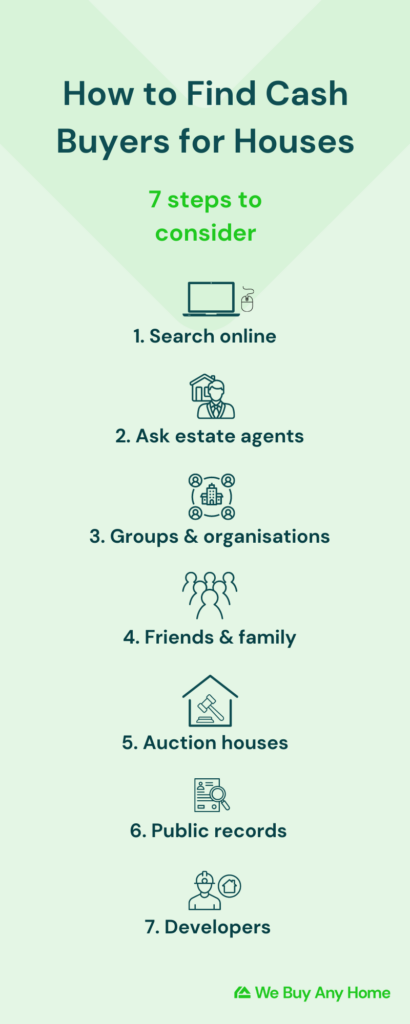
1. Search online
Search engines like Google may be the quickest and easiest way to find cash buyers.
But your investigation needs to go much further than simply pressing the search button.
Determining whether a cash buyer is legitimate online can take time and effort.
Ideally, during your online research you should look out for the following for each company:
- Many independent reviews over an extended timeframe
- An informative and well-designed website
- Listing on Companies House
- Answers to frequently asked questions
- Contact information – ideally a phone number
2. Speak to estate agents
It makes sense to speak to property experts, who can point you in the right direction for cash buyers. Plenty of estate agents could help you with this.
Estate agents often have an extensive network of potential buyers in the local area.
Therefore, they could connect you with local cash buyers they have worked with, who are active in the market, and who are trustworthy.
Your estate agent may only be willing to help you if the sale is conducted through them. But may still consider this preferable to dealing with the unpredictability of mortgages and chains.
3. Check relevant groups and organisations
There are some places where cash buyers gather, meaning that you can get in touch with lots of these people simultaneously.
Facebook groups are designated for cash buyers, and LinkedIn groups focus on property investing.
Accreditation groups, such as the National Association of Property Buyers (NAPB) or the Property Ombudsman Scheme, are also excellent places to find cash buyers.
4. Ask friends and family
You may be surprised to learn that friends or family members have experience with cash buyers in the past – or have contacts who have been involved with this area.
Speak to people you trust and see if they can make any personal recommendations on cash buyers they know.
5. Property auctions
Property auctions are predominantly populated by cash buyers and property developers looking to get a great deal.
These people might be representing organisations or simply there on their own. Either way, they could have the funds to buy your house outright.
You could attend these auction days and speak to the bidders directly to exchange contact details.
You might even ask the auction house for details about attendees or completed deals, although this is unlikely.
6. Public records
Public records of properties the UK can point you towards cash buyers.
For example, the Title Deeds for any house are available online – and if you find a property that a Limited Company owns, then this is likely to be a cash buyer.
7. Contact developers directly
Property investors usually carry out local developments in your area – individuals or companies.
Either way, this proves that local people are investing in houses, and you need to contact them.
You can put a letter through the door or speak to site managers to find out who is investing. This is a great way to contact someone who may have the cash to buy your house outright.
Sell your house fast with We Buy Any Home
We Buy Any Home are genuine chain-free cash house buyers. We can purchase your property up-front and quickly, without hassle or stress.
Fill in our enquiry form below if you want a cash offer for your house.
